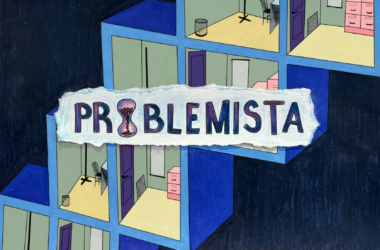After 25 years performing in the metro, Greg Dunlevy has seen some terrible musicianship.
“You get a lot people who … bang on pieces of wood,” Dunlevy said. “They go out and get themselves a cheap guitar, they buy themselves a harmonica or a recorder, and they blow in it and they can’t do anything with it. With a harmonica, they [blow in and out to] get the same two notes, and they do that for about two hours.”
Or worse. Some “musicians,” according to Dunlevy, will show up drunk and harass commuters, giving the real players a bad name. In an effort to protect their reputation and their finances, the city’s metro musicians have organized auditions to help separate the wheat from the chaff. A number of them depend on the metro to make ends meet.
“They’re trying to feed their kids, feed themselves, they’re trying to advance themselves in their art, and they can’t find places to play,” said Dunlevy, who entertains metro users on stilts.
The current situation spreads the misconception that all buskers are beggars. After one of Dunlevy’s performances, a man came up to him and offered him the remaining $1.80 on his Subway gift card, and came back a few minutes later with a couple shirts.
“I said ‘Look, I really don’t need charity. I’ve got clothes! This is just a way to make ends meet and to practice my art,'” he said.
These problems have persisted for years. In response, metro musicians have tried to get organized since the 1980s, with varying success. The newest organization, though, called the Regroupement des Musiciens de Montréal, has now come farther than any of its predecessors. Talk of auditions to perform in the metro has circulated since the 90s, but had never materialized until now.
“We’re building great things with [the STM],” said Pierre Deslauriers, the president of the Regroupement.
The Regroupement and the STM are negotiating a permit system for buskers who pass their auditions.
“If you have permits, then if you have complaints about someone you can give them warning. If they keep it up, they have a second complaint, then you hit them with a ticket. If they have a third complaint you can take their permit away for a couple of months. If they see that it’s really serious, then they’ll start playing by the rules a little more,” said Dunlevy, who is the media and communications representative for the Regroupement.
The auditions are not trying to make the Regroupement a privileged club, but are just in place to protect the musicians who need the metro to stay afloat. The talents at the first two auditions, held the last two Sundays, have ranged from “so-so” to virtuosic.
“There was a guitarist I listened to last Sunday who really blew me away,” Dunlevy said. “He basically should be playing for some big-name group. He was incredible.”
The next auditions will take place tomorrow in Rosemont, with three more sessions to follow later in the month.
Even though leading members of the Regroupement are thus far pleased, their excitement is not quite universal. Lee Blanchard, a long-time metro musician, was ambivalent about the process.
“It seems like they have good intentions, but as the saying goes, they pave the road to hell,” Blanchard said. “The anarchy system – that anybody who wants to play plays – is kind of a nice thing,” he said.
Veteran buskers are not used to playing for judges, he added.
“I don’t like the process of having somebody sitting there and watching what you’re doing.”








